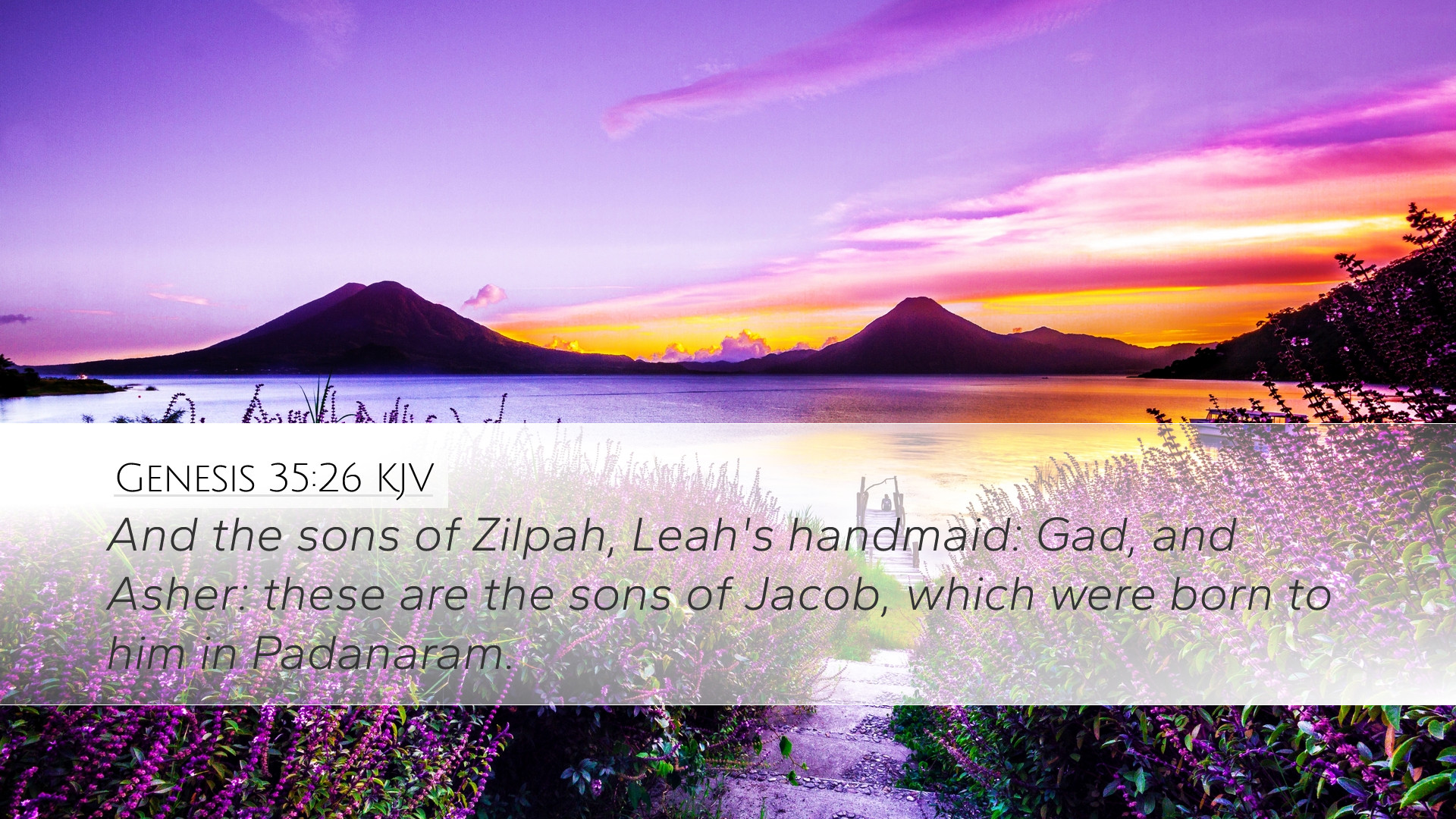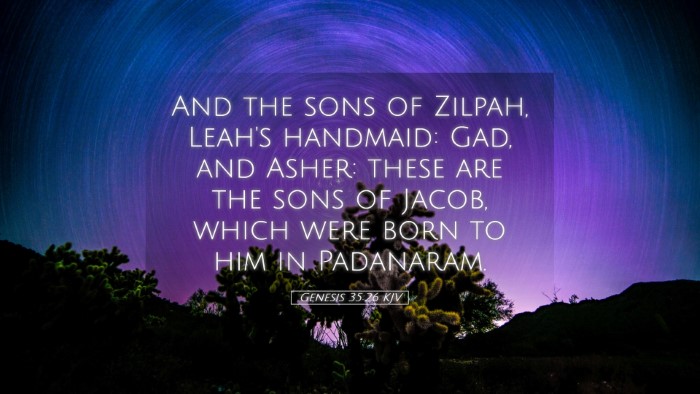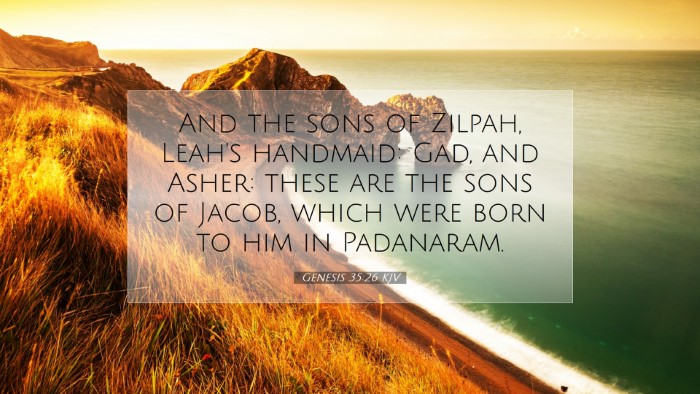Commentary on Genesis 35:26
Text of the Verse: "And the sons of Zilpah, Leah's handmaid; Gad, and Asher: these are the sons of Jacob, which were born to him in Padanaram."
Introduction
This verse is a part of the genealogical record of Jacob's family, highlighting the sons born to him through his wives and their handmaids. The mention of Zilpah, Leah's handmaid, signifies the complex family dynamics present during the patriarchal period.
Insights from Public Domain Commentaries
-
Matthew Henry
Matthew Henry emphasizes the significance of genealogy within the narrative, noting that the sons of Zilpah, Gad and Asher, play an integral role in the nation of Israel's formation. Henry interprets the mention of Zilpah's children as a reminder of God’s providence, where despite the rivalry among the wives, God was faithful to fulfill His promises to Jacob regarding his descendants.
Henry further notes that Gad's name means "a troop comes" which can be seen as prophetic, hinting at the future strength and military skill of Gad’s descendants. Meanwhile, the name Asher means "happy," reflecting the joy and prosperity that this tribe would embody within Israel.
-
Albert Barnes
Albert Barnes approaches Genesis 35:26 with a focus on its historical and cultural context. He asserts that the mention of the sons born from concubines (i.e., handmaids) serves to illustrate the social dynamics of polygamous families in the ancient Near East. Barnes points out that these relationships were often fraught with tension, yet they played a crucial role in fulfilling God's promise to Abraham about making his descendants numerous.
Furthermore, Barnes discusses the implications of the names given to Jacob's sons, indicating that each name reflects the circumstances of their birth and the sentiments of their mothers. This understanding enriches our comprehension of the societal norms of the time and how they influenced personal identities within the Israelite culture.
-
Adam Clarke
Adam Clarke provides a detailed analysis of the names and their meanings, relating them to the broader themes in the narrative. Clarke comments on the dual nature of Leah and Rachel's relationship, highlighting the ongoing competition for Jacob’s affection. He notes the irony that while Zilpah's sons are born out of this rivalry, they nonetheless contribute to the fulfillment of God's covenant with Jacob.
Clarke further elaborates that the names Gad and Asher are not just personal identifiers but serve prophetic purposes later in the history of Israel. For example, Clarke discusses how Gad would eventually represent a tribe known for their warrior spirit, while Asher would signify abundance and fertility in the land of promise.
Theological Reflections
The genealogy in Genesis 35:26 serves multiple theological purposes. Firstly, it underscores the fulfillment of God's covenant promises to Jacob. Through the generations, we see God ensuring that Jacob becomes the father of many nations, as previously promised in Genesis 28:14.
Additionally, the verse reflects the multifaceted nature of God's plan. It highlights how divine purposes often unfold through human conflicts and social complexities. The dynamic among Leah, Rachel, and their handmaids illustrates human frailty, yet God’s grace prevails in forming a people for Himself.
This passage also invites contemporary readers to consider the nature of identity within community. Each name carries a weight of meaning, linking personal identity with collective history. As modern believers reflect on their own identities within the context of the body of Christ, they can find a parallel in the way God worked through Jacob's family.
Conclusion
Genesis 35:26, while a seemingly straightforward genealogical statement, layers profound theological and historical insights. By combining the perspectives of Matthew Henry, Albert Barnes, and Adam Clarke, readers are invited to explore the richness contained within this passage.
As pastors, students, theologians, and biblical scholars examine this verse, they uncover a tapestry woven with themes of divine providence, human complexity, and the establishment of God's chosen people. This calls contemporary believers to recognize their own stories within the broader narrative of faith and God's enduring promises.


